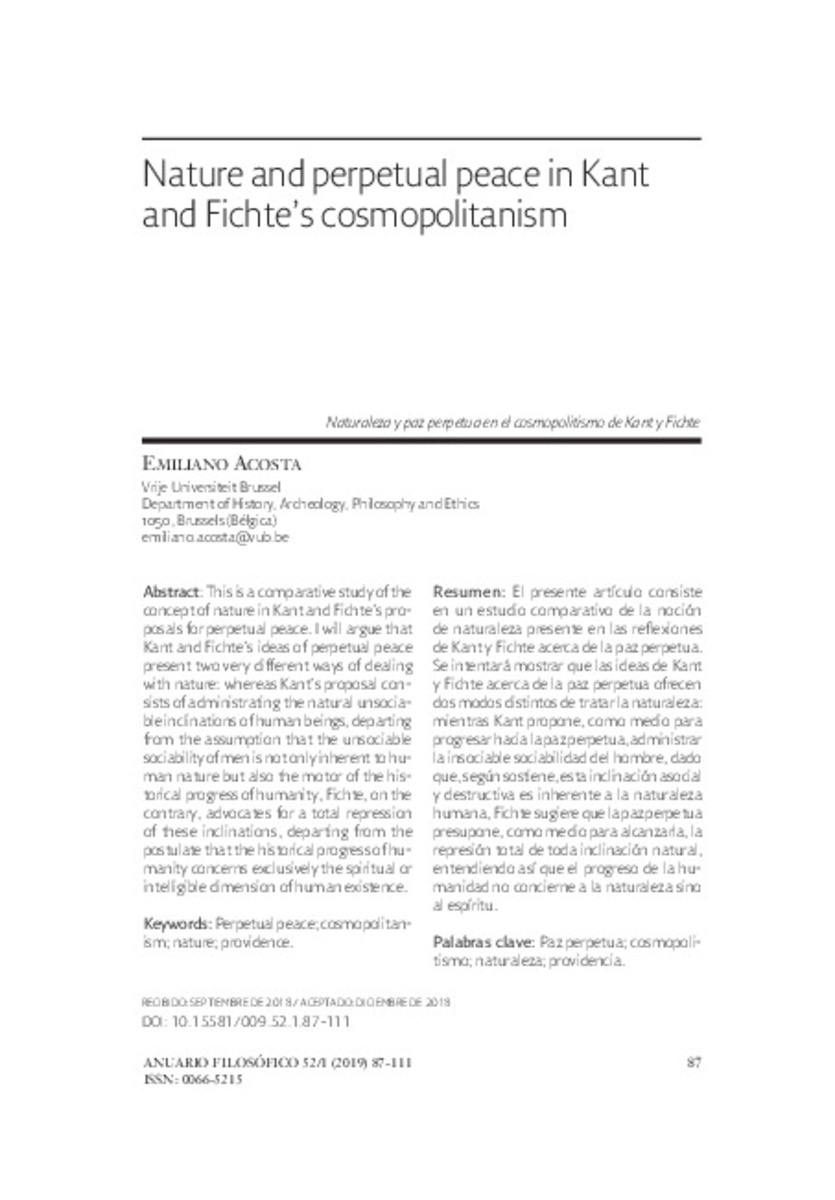Full metadata record
| DC Field | Value | Language |
|---|---|---|
| dc.creator | Acosta, E. (Emiliano) | - |
| dc.date.accessioned | 2019-04-02 | - |
| dc.date.accessioned | 2021-08-23T10:23:45Z | - |
| dc.date.available | 2021-08-23T10:23:45Z | - |
| dc.date.issued | 2019 | - |
| dc.identifier.citation | Acosta, E. (Emiliano). "Nature and perpetual peace in Kant and Fichte’s cosmopolitanism". Anuario Filosófico. 52 (1), 2019, 87 - 111 | es |
| dc.identifier.issn | 0066-5215 | - |
| dc.identifier.uri | https://hdl.handle.net/10171/61486 | - |
| dc.description.abstract | This is a comparative study of the concept of nature in Kant and Fichte’s proposals for perpetual peace. I will argue that Kant and Fichte’s ideas of perpetual peace present two very different ways of dealing with nature: whereas Kant’s proposal consists of administrating the natural unsociable inclinations of human beings, departing from the assumption that the unsociable sociability of men is not only inherent to human nature but also the motor of the historical progress of humanity, Fichte, on the contrary, advocates for a total repression of these inclinations, departing from the postulate that the historical progress of humanity concerns exclusively the spiritual or intelligible dimension of human existence. | en_US |
| dc.language.iso | eng | - |
| dc.publisher | Servicio de Publicaciones de la Universidad de Navarra | es_ES |
| dc.rights | info:eu-repo/semantics/openAccess | es_ES |
| dc.title | Nature and perpetual peace in Kant and Fichte’s cosmopolitanism | en_US |
| dc.type | info:eu-repo/semantics/article | es_ES |
| dc.identifier.doi | 10.15581/009.52.1.87-111 | - |
| dadun.citation.endingPage | 111 | - |
| dadun.citation.number | 1 | - |
| dadun.citation.publicationName | Anuario Filosófico | - |
| dadun.citation.startingPage | 87 | - |
| dadun.citation.volume | 52 | - |
Files in This Item:
Statistics and impact
Items in Dadun are protected by copyright, with all rights reserved, unless otherwise indicated.






